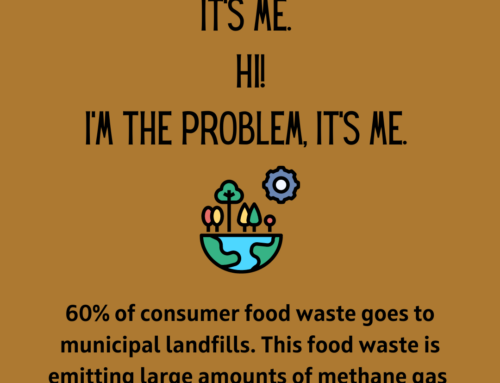If you haven’t heard, a new movie about the potential causes of childhood obesity opened this past weekend. In the likes of Supersize Me, King Korn, and Food Inc (which claims that for “the average American, the ideal meal is fast, cheap and tasty”), this movie sensationalized the way some people choose to eat, and blames the food industry for essentially making it too difficult for them to choose otherwise.
I haven’t seen the movie yet. But the trailer and synopsis seem to place a lot of pressure on the food industry in general for marketing unhealthy foods exclusively to children (think: sugary cereals, yogurt), which they believe to be the cause of excessive weight gain leading to obesity. I think they take a few unjustified stabs at the National School Lunch Program too.
The movie will no doubt stir up a bunch of heated conversation and fist pumping (Yeah! Stick it to the man!), but will not solve any problems, just as previous movies have not. More importantly, the movie may feed into the misinformed notion that sugar causes obesity. I served on a Children’s Task Force about 12-14 years ago, when “competitive foods” such as soda, chips and other vending machine items, were identified as problematic to overall nutrition and weight in students. They’ve since been removed from schools. While calcium intake may have gone up, the action didn’t “solve obesity” (and many parents pack soda and sugary drinks in their children’s lunch boxes anyhow).
Take the Fed Up Facts Quiz.
Those who subscribe to the theory that it is the food industry’s fault that our citizens are fat and unhealthy believe that this industry markets unhealthy food to children, and saturates the grocery stores and markets with junk – and people are too weak to handle avoiding it.
The other part of the theory is that sugary foods create an addiction in some people (rat studies have attempted to claim sugar is as addictive as cocaine). This puts you in the awkward position of having to walk by the potato chips and candy bars without buying them, or saying “No, not today” when your child asks you to buy a candy bar, sugary cereal, or blue yogurt.
Now I’ll admit, I bought blue yogurt a couple of times when my children were small, even though I had made secret pact with myself not to give into it. Guess what? Sometimes you have to pick your battles. Raising children is difficult, and seemingly endless, work. Parents have to realize that sometimes giving in to small stuff is okay, as long as you hold your ground in other instances, to ensure the small stuff doesn’t become big stuff. Teaching a child about healthy eating is as important as teaching them about safely crossing the street, or teaching them about the dangers of drugs and alcohol, and how to set other limits in their lives.
“Healthy eating” does not mean that you must only eat healthy food all of the time, it means that you understand that fueling your body properly is the priority, while learning to take your body’s cues for hunger and satiety, and at the same time, balancing the healthy food with treats.
A child needs help learning these skills, and sometimes as a parent you have to be strong and say “No, you can’t have that.”. And when the going gets rough, you really put your foot down with the tried and true, “Because I said so, that’s why!”.
Some people do have addictive personalities, and may indeed have more trouble abstaining from certain foods, or consuming them in moderate amounts. These people need counseling; because even if Coca Cola took all of their products off the shelves, a true addict will find what he needs elsewhere.
Pseudoscience
While I’m sure there are many science-based facts in the Fed Up movie, I’m also sure that many who watch it will walk away with distorted facts. I was recently quite amused by the Jimmy Kimmel bit where he asked “people on the street” who are following a gluten-free diet – “What is gluten?” Most people could not define it, or provided completely inaccurate information. They’ve just “heard” that “gluten is bad” so they avoid it (this was confirmed in my own reality when a friend recently asked a health food store owner what gluten was and he truly had no idea but tried to fake it).
Sugar isn’t “bad” unless you let it overtake your daily intake. The dose makes the poison. What is bad, is having poor eating habits and not being able to reconcile your behavior. There’s been quite a bit of research on the ideas of using simple behavioral techniques to help yourself avoid unnecessary snacking, or correct other types of problem eating behaviors. I often suggest using smaller bowls, for instance, for your ice cream. It fools the eye, and a little bit of something sweet is often satisfying enough (and won’t poison or kill you). So rather than banning caloric sweeteners, how about learning how to enjoy them in moderation?
Facts are facts. There are certain aspects of biochemistry and human physiology that are pretty well understood by scientists. Obesity that occurs in a 10 year old is also very different than fat accumulated later in life. While there are likely biochemical differences among people in terms of their appetite/satiety hormones, behavioral issues are at the crux of the problem. An attempt to ban sugar or a singular nutrient, while demonizing the food processing industry, is not going to reduce the incidence of obesity. Obesity is a very complex problem involving behavior, and an imbalance of energy. It’s very difficult to lose weight, but it is up to the individual to put in the effort. It’s not easy, it never has been, which is why prevention is the best cure. Don’t ban foods, let’s teach children how to eat properly.




